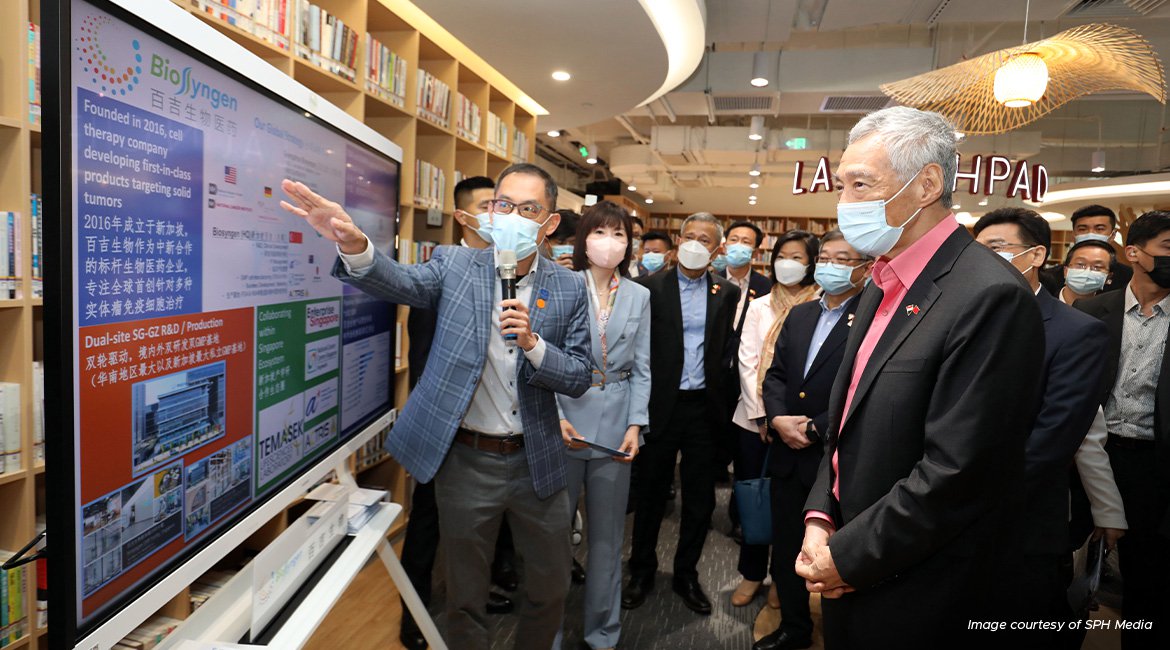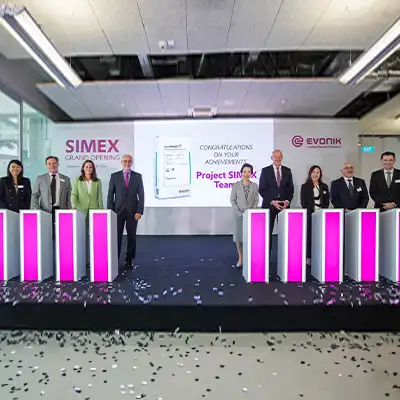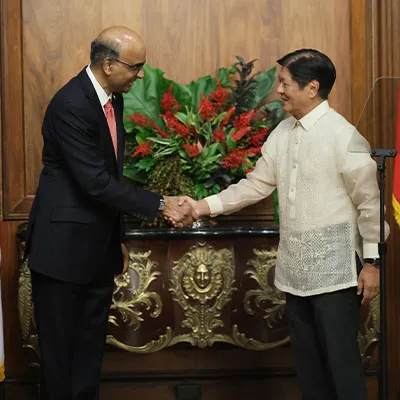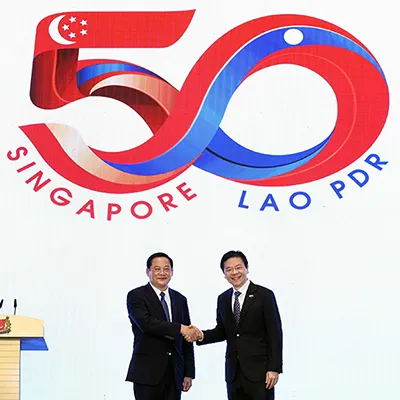Singapore Prime Minister Lee Hsien Loong on a visit to China-Singapore Guangzhou Knowledge City in March. The joint project achieved gross domestic product of 5.11 billion yuan in Q1.
Singapore and Guangdong renewed and expanded their business partnership at the 13th Singapore-Guangdong Collaboration Council meeting on Monday (Jun 26), where over 20 memorandums of understanding (MOUs) were signed between public and private bodies.
Besides deepening existing collaborations, Singapore and Guangdong will explore cooperation in three new areas: sustainability and green economy; digital economy and smart cities; and health and biomedical.
This is under the MOU for Enhanced Cooperation and Renewal of the Singapore-Guangdong Collaboration Council, signed on Monday by Singapore’s Minister for Health Ong Ye Kung and Guangdong Governor Wang Weizhong, who Co-Chairs the council.
Ong noted that the cooperation covers key areas discussed during Singapore Prime Minister Lee Hsien Loong’s visit to China in March, when the two countries upgraded their bilateral relations.
He added that the upgraded partnership will guide expanded collaboration in “forward-looking areas with great future potential” such as finance, health and digital and green economies.







